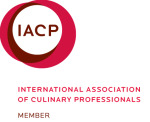I’ve been meaning to go to Parkside for a while, going so far as to make it one of my new year’s resolutions. Well, I took advantage of Dine Out Vancouver to cross this one off my list – and it was so good, I’m hoping to cross it off more than once.
In addition to the $38 prix fixe options, there were a few upgrades. I opted for a $5 appetizer upgrade for the assiette of duck, which more than exceeded my expectations. There was duck proscuitto (paper thin, delightfully salty), duck rillettes (great texture), apple compote (with a boozy kick), homemade cornichons, and…oh dear, I need to pause.
Okay.
The duck consomme was my second-favourite thing on the plate: meaty and not the least bit greasy. But my absolute favourite was the foie gras parfait. I can’t tell you how deliriously, fantastically delicious it is. I don’t usually like cold foie gras, because it tastes too much like a stick of duck-flavoured butter. But foie gras parfait a la Andrey Durbach is like duck-flavoured air that melts in your mouth, bathes your tongue in tastiness, and leaves you with your eyes closed from pure ecstasy.
Oh, it was good.
For the main, I ordered the 36-hour low temperature shortrib. It was so tender you could cut it with a fork, and it was sprinkled with the slightest touch of grey salt. It was presented on a bed of horseradish pomme puree (perfectly smooth) with Yorkshire pudding (so cute!), meaty beef jus (I’m drooling) and cipollini onion rings (sweet onion ring inside crunchy, light batter).
Dessert was a trio of sorbets, and it was brilliant. I mean, it was a case study in thoughtful, structural dessert. Picture three scoops of homemade sorbet. Start on your right with a blood orange-campari sorbet, on a bed of blood orange marmalade. The blood orange tastes like an orange – but not quite like an orange – and the campari throws in some bitterness. Then you move to the middle scoop of mango-basil sorbet, which is sweet and savoury. Finally, you finish with the scoop of yogurt-vanilla sorbet, which is simultaneously creamy, tangy and refreshing.
It was perfect. So simple, but perfectly executed.
I got the VQA wine pairings, and they were nice but not amazing. I think if I had to do it again, I’d up the ante and get the premium wine pairings.
Most of all, I didn’t feel like I was there for Dine Out Vancouver. I felt like I was there for a nice meal on a regular night, and the food (taste, quality and plating) and service were impeccable.
I’m definitely going back. There’s a 6-course Chef’s tasting meal for only $65, which is a serious steal for food like this.



There is nothing classy about foie gras.
Foie gras is the liver of a duck who has been force-fed for the last two weeks of his life in order to expand the liver to 10 times its normal size. It is an internationally recognized cruelty and has been banned in many countries. One of the world’s greatest chefs, Albert Roux, who trained Gordon Ramsey, has spoken out against the practice of force-feeding. It is completely cruel and completely unnecessary, and has no place in a civilized society.
liberationbc, thanks for your comment and for being well-spoken about it. It seems that other industries have not only educated the public but have also taken steps so that consumers can still have their food (and eat it too). For example, the organic meat industry has done a great job in educating consumers and providing a viable alternative. Perhaps a campaign to market duck liver, rather than foie gras, would be useful?
Unfortunately, it seems that in the restaurant community, the taste, texture, and social status of food is far more import than how it is produced and how the animals it comes from are treated.
And the chefs sell it because people buy it. If people didn’t order it at their restaurants, then they wouldn’t sell it. And if people didn’t write about how good it is without saying what the true costs of the food are, then perhaps people wouldn’t buy it.
Gawd. It has nothing to do with “social status”. Throwing around class with such ignorant abandon is an adolescent indulgence, one that speaks to the leadership of this group and not, I should hope, the temperaments of those who might agree with them on the issue of foie gras. As with everything Joanne and Greg do for LBC, it doesn’t advance their argument an inch. For lack of leadership the LBC continues to tread reason-less water in a shallow puddle of their own self-righteousness.
Fanaticism is so very tiresome.
If it has nothing to do with class, then I’m afraid this is a very common misconception. From wikipedia: “Foie gras is a luxury dish. Many in France only consume foie gras on special occasions, such as Christmas or New Year’s Eve réveillon dinners, though the recent increased availability of foie gras has made it a less exceptional dish. In some areas of France foie gras is eaten year-round.” http://en.wikipedia.org/wiki/Foie_gras
Luxury dishes are absolutely tied to social status. I don’t see any evidence to the contrary, but I’d be happy to hear some.
Foie gras is still produced by force-feeding ducks for the last 2 weeks of their 14 week life using a metal pipe attached to a pneumatic device that forces a massive amount of food into their stomachs in a matter of seconds. On the farms that supply most of the foie gras served in Vancouver these ducks are confined in individual cages for this period. This is actually common practice even in Belgium and France now.
Scoutmagazine, once again I am seeing that foie gras supporters are only willing to take personal attacks, putting forward no evidence about the actual production methods of foie gras. Why is this? Are you afraid to talk about how it is actually produced?
@liberationbc – I don’t think that scoutmagazine was avoiding discussion of how foie gras is produced. Rather, he was commenting on your use of the word “social status.”
Here’s my take: yes, foie gras production is awful and cruel. I’d guess that most people who eat foie gras are aware of how it’s produced, yet they eat it anyway. I asked the question of why someone hasn’t marketed a viable alternative, because that’s really the only way you’ll get someone to change their mind. Telling people the truth is one thing, but when the only possible remedy is deprivation, most people won’t do it. Conventional meat farming is terrible, but consumers have the option of buying organic meat – and many do. If the options were limited to eating conventional meat or being vegetarian, I’d bet that the average consumer would eat conventional meat.
So what’s being done to introduce a foie gras alternative to the market? *That* would be something to talk about.
Also, based on the speed of reply, I’m guessing that you (liberationbc) have this comment on a feed. I’m a bit disappointed that you haven’t commented on my other foie gras post:
http://thewelltemperedchocolatier.wordpress.com/2009/02/07/have-your-foie-gras-and-eat-it-too/
Not only does Dan Barber say that foie gras is delicious, but then goes on to talk about humanely raised foie gras and how it’s even *more* delicious. Here’s a marketable alternative to conventional foie gras – offer this to consumers, and they’d be all over it.
If you really want to change people’s minds, you’d be better off finding an alternative. Commenting in wee blogs like this probably won’t make much of a difference.
Thanks for pointing out your other post. I had seen it but never got around to commenting on it, but I now have.
If “foie gras production is awful and cruel”, then why eat it? Until chefs see that there is a demand for an alternative they will not actively source it. Pino Posterraro stopped serving foie gras because there was no alternative available, as did John Bishop. Oyama actually produces an alternative pate, but so far no one can produce a liver that is non-force fed and can be pan seared and taste like foie gras.
I think this will really have to come from consumers stepping and saying that they will not support this cruel method of production. If people keep going along and eating foie gras but lamenting how bad it is for the animals, what reason do chefs have to change? It will only be when customers take business elsewhere or stop ordering the foie gras that chefs will take notice.
In this particular example, the staff at Parkside knows that you paid for the foie gras and you liked it, and you wrote about it on your blog. That’s one more vote for them to continue serving the same Elevages Perigord foie gras.